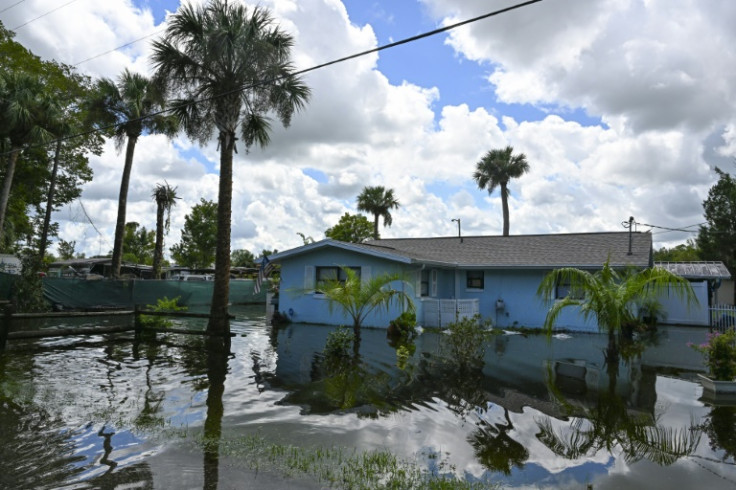
Florida Governor Ron DeSantis declared a state of emergency in five counties Wednesday following severe flooding caused by a tropical disturbance. The deluge battered southern Florida, blocking roads, stranding vehicles, forcing flight delays and cancellations at airports.
The disorganized storm system, moving across Florida from the Gulf of Mexico, coincided with the early June start of hurricane season. This year's hurricane season is expected to be one of the most active in recent history, according to Associated Press.
Although the disturbance has not yet reached cyclone status, the National Hurricane Center indicated only a slight chance of it developing into a tropical system once it crosses Florida and moves into the Atlantic Ocean.
The flooding made several roads impassable in Florida, including a section of Interstate 95 in Broward County, where southbound traffic was being diverted. Contractors were dispatched to pump the drainage system, while the Florida Highway Patrol confirmed that the interstate would remain closed until the water was drained.
The National Weather Service's Miami office issued increasingly urgent warnings. "Life-threatening flooding is now ongoing. Please stay off the roadways and get to higher ground," it posted on X.
In response to the flooding, mayors in Fort Lauderdale and Hollywood declared states of emergency in their cities. DeSantis extended it to include Broward and Miami-Dade on Florida's Atlantic coast, as well as Collier, Lee, and Sarasota counties on the state's west coast. Miami-Dade County Mayor Daniella Levine Cava also declared a local state of emergency.
Fort Lauderdale Mayor Dean Trantalis reported significant flooding in the city, including major thoroughfares like Broward Boulevard and Federal Highway near downtown.
The flooding also disrupted operations at Fort Lauderdale-Hollywood International Airport, causing numerous flight delays and cancellations. The NHL's Florida Panthers experienced a more than three-hour delay departing Fort Lauderdale for Edmonton for the Stanley Cup Final games.
Further north, the National Weather Service in Melbourne confirmed an EF-1 tornado hit Hobe Sound on Florida's Atlantic Coast north of West Palm Beach Wednesday morning.
Forecasters have predicted more rain throughout the week, prompting the Miami weather service office to extend a flash flood watch through Thursday.
Some areas could receive an additional 6 inches of rain. The western side of the state, which has been experiencing a prolonged drought, also saw significant rainfall, with nearly 6.5 inches recorded at Sarasota Bradenton International Airport on Tuesday. Flash flood warnings were in effect for these areas as well.




